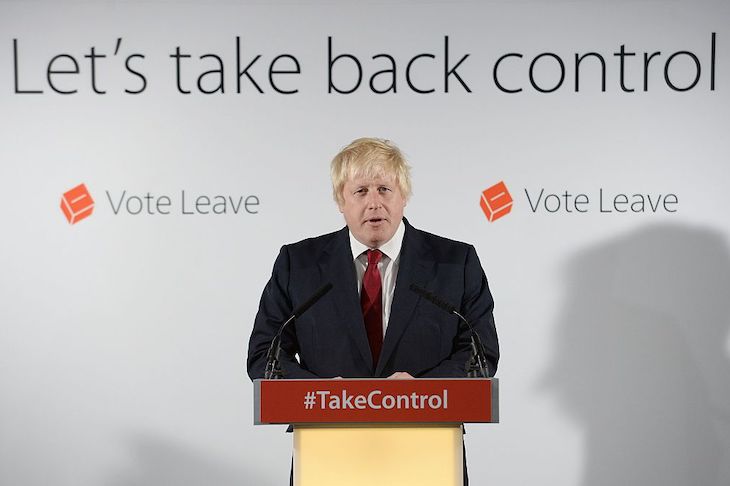Until now, new Prime Ministers have always arrived in 10 Downing Street accompanied by the team they built around them in Parliament. But Boris Johnson is different. He is the creature of two Blair-era inventions: devolution and referendums. The team he is building around him in No. 10 is from City Hall and Vote Leave, where he was able to pioneer a new style of politics and government. I look at this in my Daily Telegraph column today.
The changes he is making go well beyond new faces in Cabinet, dramatic though they are. It is about how government is run, what it does and how it works. When I was a reporter in the Scottish Parliament I thought that Edinburgh might pioneer new political techniques far ahead of Westminster. It was not to be. The newly-promoted Ben Wallace was the only MSP to graduate to the Commons: his experience in Holyrood helped him because the expenses scandal hit Edinburgh before it hit London. He went on to publish details of his expenses before any other MP, realising before any of them how serious this would be. (He won a Spectator Parliamentarian award for it.) But other than that, not much local innovation has made its way to Westminster. Holyrood instead used its devolved powers to reject innovation from Westminster.
It was Boris Johnson in City Hall who innovated, putting together a team of expert outsiders as deputy mayors. He rejected the clannishness that infects Westminster, where loyalists are promoted (epitomised by David Cameron’s notorious chumocracy). Boris chose on talent alone: hence figures as diverse as Lynton Crosby, Munira Mirza and Kit Malthouse joined him in City Hall. He is doing the same in No. 10 and his various advisers will report to Sir Eddie Lister, his chief of staff. This might infuriate MPs, especially those who thought they’d follow their hastily-chosen chieftain into No. 10, but the clannish model has just been broken.
Blair’s referendums allowed new people to enter the arena of political campaigns. They allowed a young Dominic Cummings to crush the government in the 2004 referendum to impose a devolved parliament on the North East of England. The skills Cummings learnt then – as an insurgent, disciplined and workaholic campaigner – were successfully carried into Vote Leave. His former partner in the Brexit endeavour, Matthew Elliott, is being tipped to join Sajid Javid in the Treasury.
The result of this will be to reject the old rules: that you govern, then at some stage switch to campaign mode. The Boris project is starting in campaign mode, and I doubt it will ever stop. This is one of Donald Trump’s innovations: never stop campaigning. To apply pressure to the insiders, appeal to the outside. As James Forsyth says in his typically brilliant cover piece this week, Boris will use his external influence to nudge things along inside Parliament. It will be a government like no other.
And will it work? The odds against it are still huge: May wasted three years on a deal that Parliament would not and was never going to pass. To do a better job in a few weeks with an EU that prides itself on intransigence will be, to put it mildly, a challenge. On Monday, I thought it more likely than not that he’d fail. But now Cummings is on board, that has tipped the balance: I now think Boris is more likely to succeed. It’s still finely balanced – I’d say his chances of success have moved from 45 per cent to 55 per cent – but Cummings has the professionalism and the focus to keep things together. Will he have the power? Will he be able to fit a saddle to No. 10? I have no idea, and suspect he won’t know either. A lot depends on whether this system coheres. On whether anything happens when they press the accelerator on a new model of governmental.
But Brexit or no, I suspect it will be the changes to government that will last. Boris’s team will apply the techniques of modern campaigning and a more modern system of governing to Westminster, pioneered in the labs of Tony Blair’s constitutional reform.







Comments